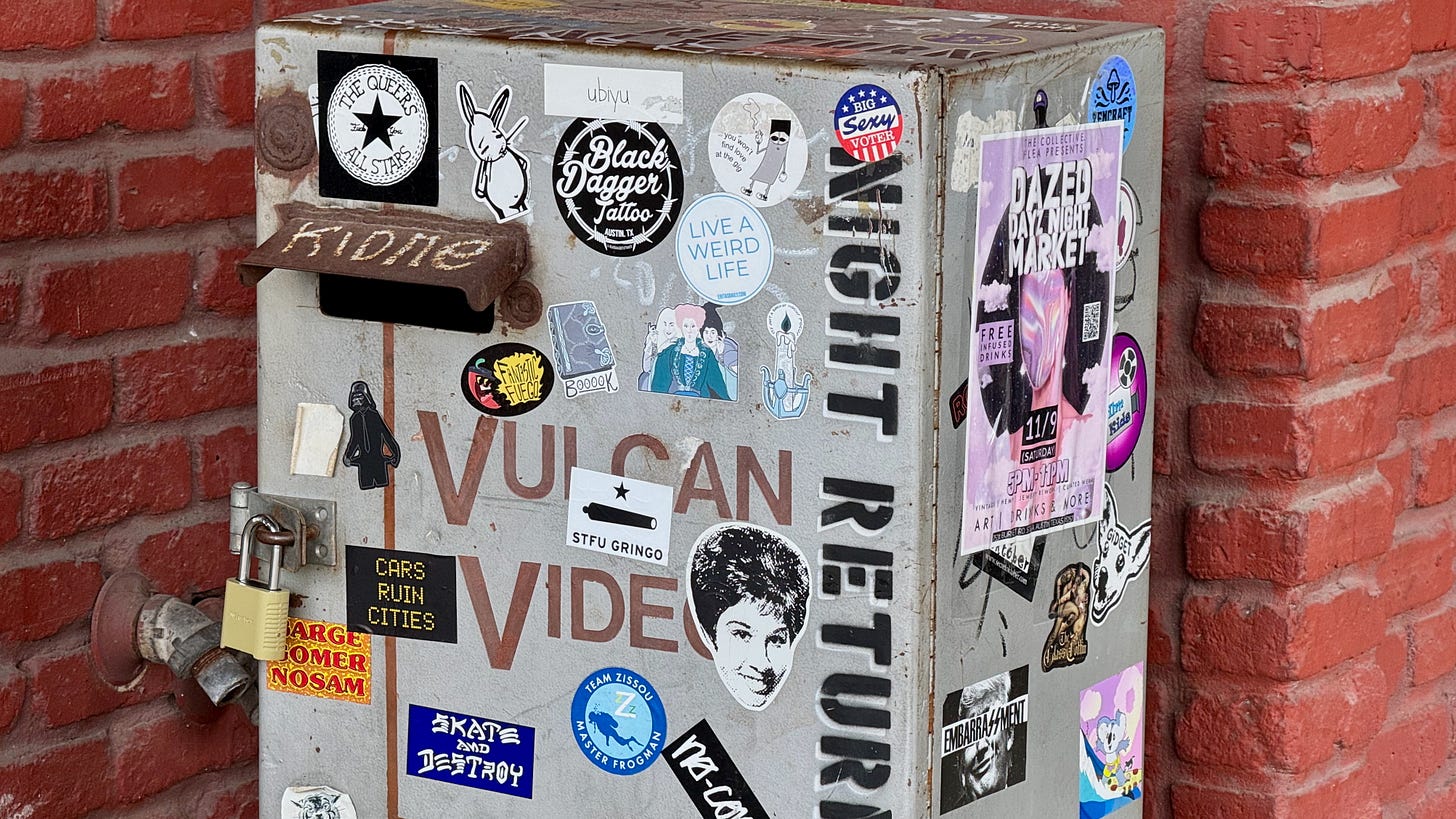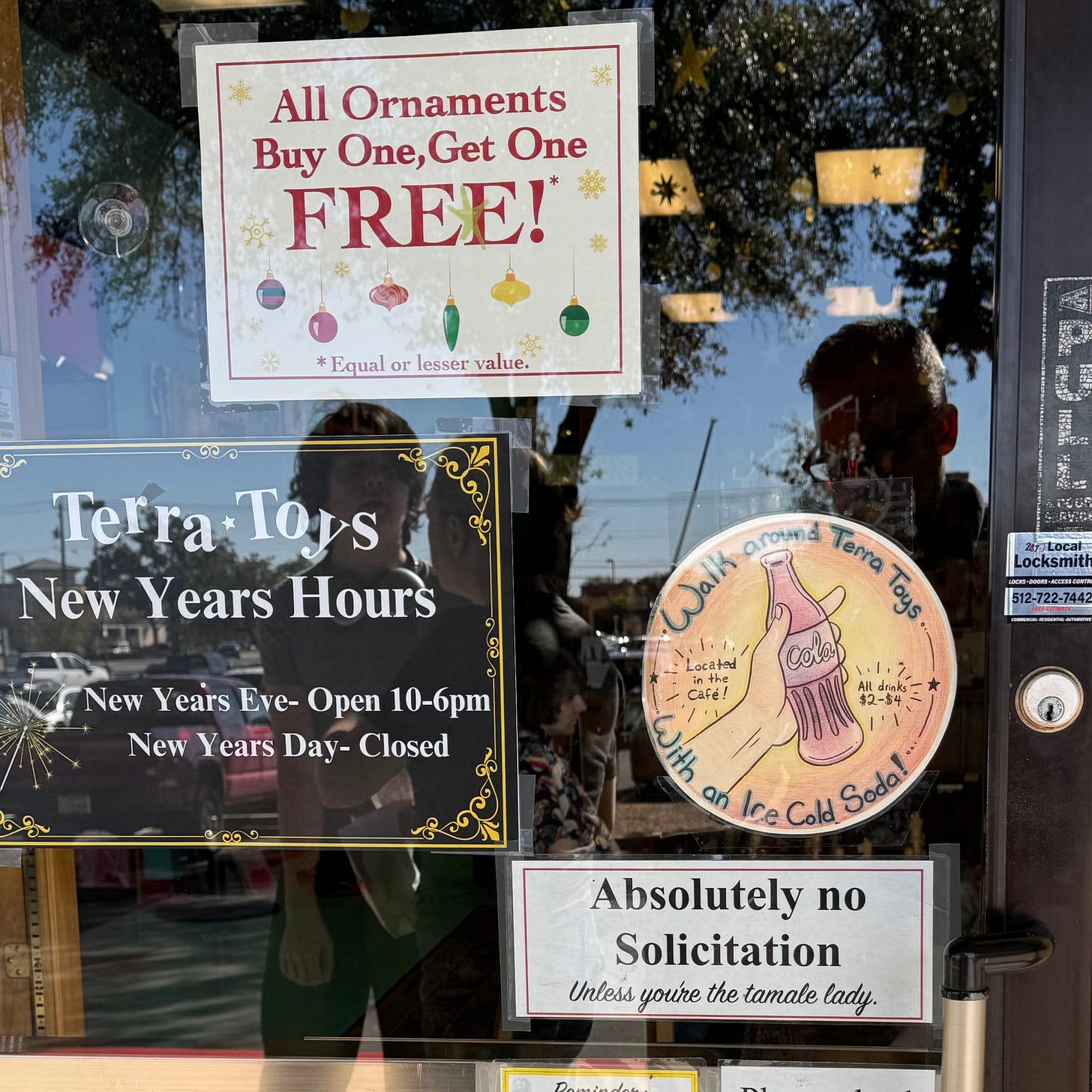PaaS is Better Than Kubernetes
Also, 2025 predictions and re-learning how to listen to yourself instead of others. Plus, links and strange finds from the World Wide Web.
CaaS Problems
Nicky lists the advantages of a real platform over Kubernetes. The platform is Cloud Foundry, and it’s been in development and use for many years, all ready to use.
Building platforms
I think he goes a little strong on the “sometimes Kubernetes is good for…” part, but that’s mandatory seasoning for such commentary.I don’t hear a lot of people saying “we love Kubernetes!” This is especially true at “normal” organizations. Those that don’t complain (too much) have built layer upon layer of platform-code on-top of Kubernetes and tooling around it, hiding it from developers and even operators. That seems like a lot of work when you could just use an already made PaaS.
You can get a sense for what those layers are in the CNCF’s platforms white paper, and then an idea of the two the three (or more!) years of work you’ll be doing to make it all work in their platform maturity model paper. Both of these papers are excellent - I don’t think they’re read widely enough.
The wrong layer
I think what’s happened is a classic dog catching the bus situation. Originally, Kubernetes’s purpose was the commodify AWS’s hold on IaaS, giving Google and Red Hat a strategic tool. Later, everyone else jumped onto that strategy. It was meant for public cloud providers and people building platforms. In the end, AWS seems to have absorbed and adapted to the threat. That is: Kubernetes was for cloud builders, not developers.
The Kubernetes people told us his over and over. But, through the usual resume driven development and vendors happy to be janitors for the mess, Kubernetes moved up the stack to a general purpose platform layer, used directly by application developers. Clearly, that’s a mistake, and we’ve spent well over five years dealing with it.
Will someone think of the operator?
There’s another thing scurrying about in his post: developer productivity is fine, but operations productivity is better. A misinterpretation of DevOps is that developers should work more with infrastructure, networking, and whatever else is in “IaaS.” SRE and platform engineering tried to correct this, and maybe we’ll get there. But, in the meantime, using Kubernetes just means you’re making developers deal with infrastructure.
It also means you’re giving your operations staff a lot of extra work. When I talk with people in large organizations, a lot of this comes down to adding in all the standard enterprise grade features to Kubernetes: HA, storage management, availability, security, multi-region hoopla, etc. You know, all the great -illities. This is especially true when it comes to data management and databases - something that’s core to all enterprise apps. Those things have been solved for a long time by cloud providers - the public ones and in private cloud with VMware.
In all this focus on developer productivity over the years (and, worse, Kubernetes), we’ve lost sight of operator productivity. This seemed like a good gamble when everything was going to move to public cloud - public cloud gives off the vibes that you don’t need as many operations staff, which feels true. But, now the we’re in a cloud equilibrium where workloads are spread 50/50 between public and private cloud, we should focus on operations productivity more - and security, compliance, etc.

Check out Nicky’s post for several comparisons between Cloud Foundry and Kubernetes for a lot more. If what you care about is developers and enterprise applications, he makes a good case that you should just use Cloud Foundry, especially if, like so many large organizations, you already do.
2025 Predictions
Our 2025 predictions episode is out, take a listen: we recap the biggest tech news and trends of 2024, grade our predictions from the year, and look ahead to 2025. Plus, we share our New Year’s resolutions.
It’s also our 500th episode!
Relative to your interests
How I Replaced Notion with Reminders, Numbers, and Notes - Use the apps they come with MacOS.
Exporter - Exports your Apple Notes as markdown files. Good stuff.
HP Study: Why Work Isn’t Working - ”Workers who use AI report greater job satisfaction and work-life balance. AI tools automate tasks, streamline workflows and give employees more time and opportunities to enjoy their work—so much so that 60% of WRI respondents who use AI credit it with contributing to a better work-life balance, while 68% say AI opens up new opportunities for them to enjoy their work.”
Harness’s CEO Jyoti Bansal on creating an all-singing platform for developers – and “startups within startups” - Pipelines.
The End of Democratic Delusions, George Packer, The Atlantic - “Reaction is insular and aggrieved, and it paints in dark tones. It wants to undo progress and reverse history, restoring the nation to some imagined golden age when the people ruled. They want a strongman with the stomach to trample on the liberal pieties of the elites who sold them out.”
Screwed by the cloud: Hardware vendors need DCs to refresh - ‘Almost no organization these days wants to build their own on-prem datacenter," Edwards said. "They want to have the control, the sovereignty, the security, and compliance, but they want to locate it where they don’t have to deal with an increased power requirement, increased need for liquid cooling, which you can’t just repurpose an existing datacenter for.’
The Beautiful Failure of Being a Man - Most everyone thinks they’re less beautiful than they actually are.
Why are corporations cutting managers? - “a large share of a company’s work force does not produce widgets. Instead, they produce organizational capital.” // Also, what if employee (individual contributor) productivity meant less managers?
Big Tech is pushing ‘AI agents.’ They’ll need intimate access to your data. - (1) The next big bump in AI productivity and change will come when enterprises give it access to all the data, (2) historically, access to data for the people who need it is a huge bottleneck, (3) give the advertising tech companies (Google, Facebook, etc.) access to all your personal data…what could go wrong?!
How to break free from your “toxic productivity” cycle - “if you’re not able to carve out even 20 minutes for yourself, then something needs to change in your life.” // Tools that find the priorities are hard: “We hear a lot about how to optimize for productivity, but what we don’t have is the emotional awareness and emotional intelligence around why we pursue the things we pursue.” // Related: make sure you have some purpose, even if you’re rich.
Hitting OKRs vs Doing Your Job - “OKRs say what is different this quarter, what we’re changing, and what we’re trying to figure out.” // Also, why OKRs work better in marketing than in product.
OKRs for Evil and Good - Use the metrics well, and know how they work.
They squandered the holy grail - “Writing Tools is basically useless for me. It’s just a way to get a slightly worse version of what I already have the ability to make myself better.”
What to know about Democrats losing the working class - The race + labor angle on “how did the Democrats lose the US election” quandary.
Tips on Using LLMs (AI) Effectively for Text - “If you take away one thing from this, it’s that asking the LLM things, rather than using it to generate copy and paste text, is almost always a better use case.”
Wastebook
“Amiable Nickel.” In for 2025.
“Modern adhesives are central to her efforts because she’s constantly clamping together junk-scraps which have no common material properties.” bruces.
And: “The public limits of everyday weirdness.”
“There’s plenty of reason to despair. But, as Terence notes, there always has been.” // Wise words for any topic. Or: “if you think The Culture it’s bad now, you should have heard Socrates' take!”
“natural Ponzi scheme.” Krugman.
“The most important characteristic of LLMs is heir patience.” Alex.
“Clavdia leaves Hans Castorp with a framed X-ray of her tubercular lung.” Here.
“The western sunshine of Ronald Regan.” Political Gabfest, Jan 2nd, 2025.
And: “the fringe has become the rug.” (Originally from Matthew Taylor.)
“I don’t know what a wallet looks like,” my four year old.

Conferences
cfgmgmtcamp, speaking, Ghent, Feb 3rd to 5th.
I’m waiting to hear back from some cfps, and need to submit to a lot more.
Logoff
We’re back in Amsterdam. For three weeks, in Texas, we lived with blue skies and temperatures in the 80’s F (high 20’s in C). As if to really rub your face in this point, the ground at Schiphol was covered in snow, the roads in sludge, and the skies full of grey. // Over the break I’ve returned to a new thought over and over: I’ve stopped listening to my own feedback loops, let alone making micro- and macro-life choices based on that feedback. That is, I don’t use my own sensing and feelings to drive how I should be living. One way of looking at it this is that I ignore the stresses in my life, thinking that they’re irrational, when really they’re signals telling me what to prioritize. That comes from over-applying all the self-care stuff from DevOps and pandemic times. One can have too much self-care. It also means I too easily slide into people-pleasing, ignoring my own desires and intuition about what needs to be done, and even my state of mind. My calibration for “trusting myself” is all out of whack: I don’t know how to balance “what I want” with “what other people want of me.”


